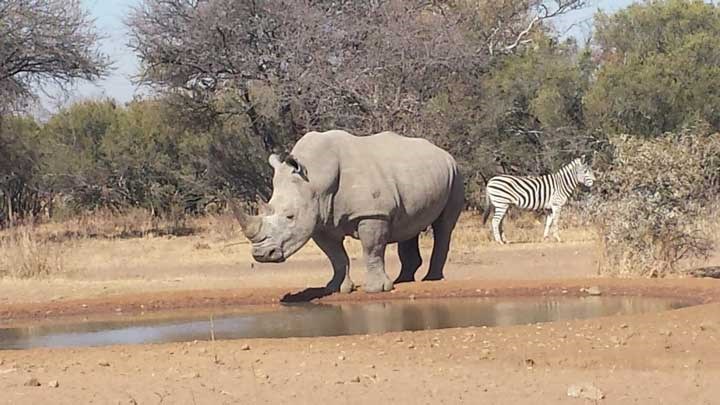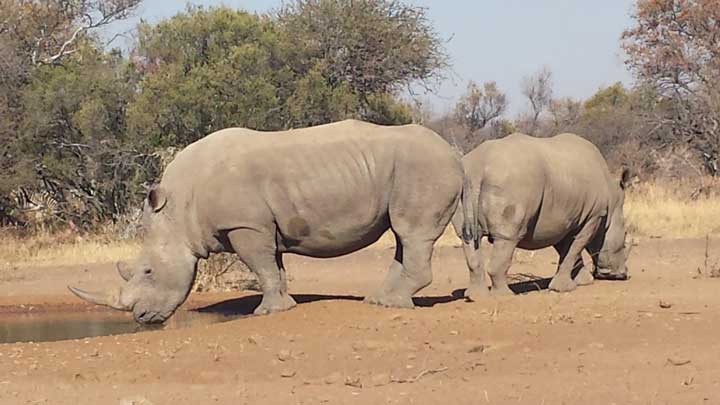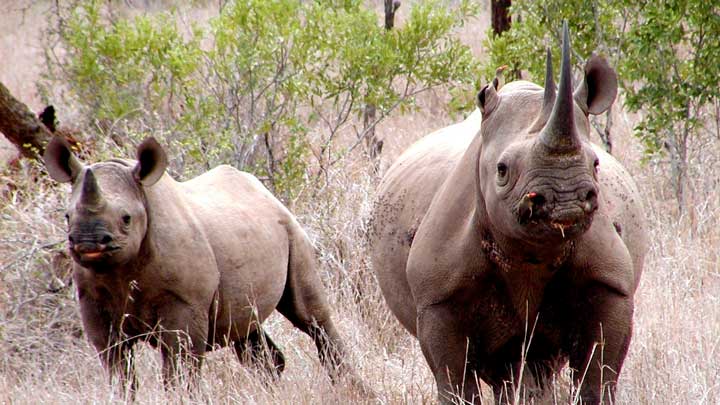
by Karen Mehall Phillips - Thursday, March 19, 2020

Noted rhino poaching investigator Lt. Col. Leroy Brewer paid the ultimate price for exposing poaching syndicates and corrupt law enforcement officials in Africa on Tuesday when gunmen ambushed, shot and killed him in South Africa. According to NB News and the BBC, South African police chief Gen. Khehla Sitole has ordered a team of investigators “not to rest until Col. Brewer's killers are brought to book.”
Calling the murder senseless and a huge loss, in an official statement Gen. Sitole said Lt. Col. Brewer “always excelled in cracking complex cases, particularly related to rhino poaching.” South Africa has experienced a marked decrease in rhino poaching incidents in recent years due to increased investigations and efforts to guard the animals. As a testament to Col. Brewer’s efforts, in 2019, 594 rhinos were poached compared to 769 in 2018 and 1,028 in 2017.
Making it his life’s mission to shut down poaching, Col. Brewer investigated multiple poaching syndicates in Kruger National Park (KNP) in northeast South Africa. He also focused on stopping syndicates focused on ambushing armored vehicles transporting money from banks.

News reports document how Col. Brewer played a key role in the 2018 arrest of two suspected rhino poaching kingpins—including a former policeman—and was later assaulted by protesters who demanded their release on bail. He fearlessly investigated other policemen suspected of being linked to poaching syndicates.
As far back as 2016, Col. Brewer was recognized for his demonstrated track record of success in bringing poachers to justice when he was named the best detective in the Hawks, an elite police unit that investigates organized crime. According to the BBC, that same year a local newspaper reported that “he arrested two policemen but could not take their fingerprints and charge them because other officers refused to cooperate.” Instead, the corrupt officers locked up Col. Brewer and a co-investigator—in the same cell as the arrested officers. In the courtroom, Col. Brewer said, “I banged on the walls for ages until someone came to help us.”
Lt. Col. Brewer’s colleagues described him as someone who loved nature and was a skilled, expert investigator devoted to his job.

Background on the Illegal Trade in Rhino Horn
According to the group Save the Rhino, which supports rhino conservation programs across Africa and Asia, most of the rhino poaching occurs in KNP, which borders Zimbabwe to the west and Mozambique to the east. Rhino horns remain in demand in Asia, primarily in China, Vietnam, South Korea, Malaysia and even India where it is used in traditional medicines. While China imposed a ban on trading in rhino horn in 1993, the country remains the largest and most influential of these markets.
The word “rhinoceros” comes from the Greek words for “nose” and “horn.” According to sciencing.com, the horn is comprised primarily of a protein called keratin, the same substance found in human hair and nails. Sadly, Asian markets sidestep such scientific facts. Maybe they could try grinding human fingernails instead to cure a few ailments.
The NRA Hunters' Leadership Forum website covers news relevant to hunters on the local, national and international fronts. We track how hunters' dollars are spent and we celebrate our long and rich hunting tradition, exposing those who seek to destroy it. Follow NRAHLF.org on Twitter @HuntersLead.
About the Author
Karen Mehall Phillips is the director of communications for the NRA Hunters’ Leadership Forum and senior editor of NRA’s American Hunter. An avid rifle and bow hunter, she has hunted for 30 years and in 29 states, Canada, Italy, Finland, Germany, Spain, New Zealand, Greenland and Africa, including for two of the Big Five.
Karen draws on her experience to educate non-hunters on the critical role that hunters play in wildlife conservation worldwide and to inform them of the dangers anti-hunting extremists present to the future of wildlife conservation. She is invested in fighting America's culture war on hunters and hunting and works to shed light on anti-hunters’ blatant attempts to tout emotion and misinformation over scientific facts.
An NRA Endowment member, Karen worked in the NRA public relations arena prior to joining NRA Publications in 1998. She is the founding editor of two NRA official journals: America's 1st Freedom and Woman's Outlook. National writing awards include being named the 2015 Carl Zeiss Sports Optics Writer of the Year. She actively promotes women and families in the outdoors. She is also a member of the Washington metropolitan area's Fairfax Rod & Gun Club, a founding member of the Professional Outdoor Media Association, a member of Safari Club International and a Life member of the Dallas Safari Club and the Mule Deer Foundation.
E-mail your comments/questions about this site to:
[email protected]
Proudly supported by The NRA Foundation and Friends of NRA fundraising.
